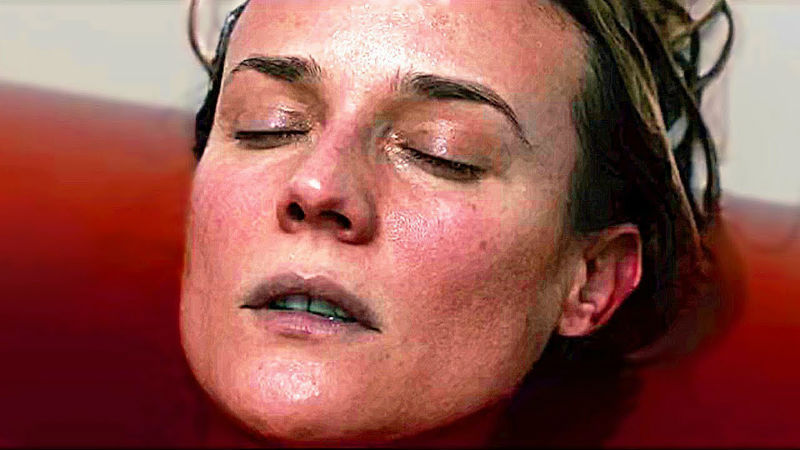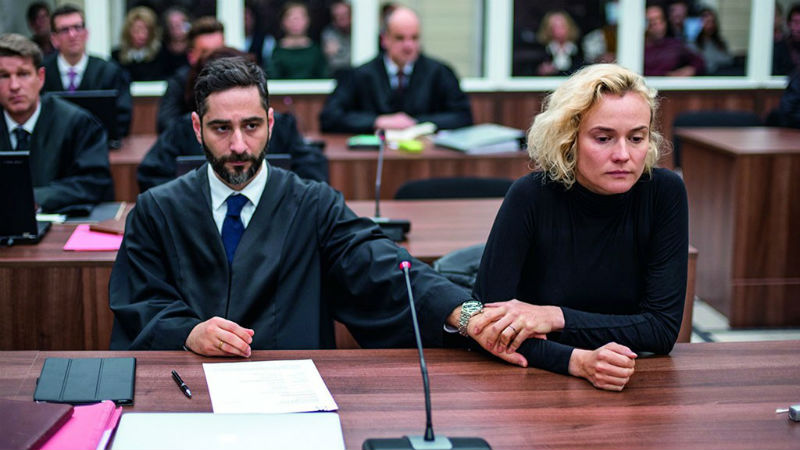Picture above: Getty Images for the Red Sea International Film Festival
Born in Frankfurt in the year of 1973 to Sunni Muslim parents, Fatih Akin is now firmly established as one of the most prominent voices of German cinema, with 18 feature films under his belt. They include the 2004 Golden Bear winner Head-on, the political thriller In the Fade (2017), the dirty serial killer biopic The Golden Glove (2019), and much more. His movies often deal with the topic of Muslim identity in Europe. He is a special guest at the 2nd Red Sea International Film Festival, where he is showcasing his latest creation Rhinegold, the real-life story of Kurdish-German hip-hop rapper, entrepreneur, and ex-convict Giwar Hajab, better known by his artistic name Xatar (review to follow soon!).
Victor Fraga briefly spoke to the talented filmmaker in Jeddah, during day 5 of the 2nd Red Sea International Film Festival:
…
.
Victor Fraga – You are in Saudi Arabia! How did this invitation come to being?
Fatih Akin – I am a good friend of Kaleem [Aftab], who is one of the festival programmers. I knew about the Red Sea [International Film Festival] from the very beginning. This gigantic new festival bang in the middle of the Middle East. I was very curious about it. This is a part of the world I had never been to, and I’m a very curious person.
Saudi Arabia was a very important place for my father because he was a very spiritual person. And my father’s trip to Saudi Arabia changes our lives. He became a far more peaceful person upon his return. He passed away last year while I was shooting,
VF – Is it emotional for someone who grew in a Turkish Sunni Muslim environment to be in Saudi Arabia?
FA – Saudi Arabia was a very important place for my father because he was a very spiritual person. His trip to Saudi Arabia changes our lives. He became a far more peaceful person upon his return. He passed away last year while I was shooting. Knowing how much this place meant to him makes this trip very special to me. It’s not just a trip for the filmmaker. It’s a deeply personal and spiritual experience.
VF – Are you planning to visit Mecca, and do your Hajj!
FA – Actually, I went to Mecca already! But it wasn’t the Hajj. I did the Umrah instead. This is one of the centres of the world. You get Milan for the fashion world. Then there’s New York, LA, Beijing, maybe Mumbai. When you are there, at the centre of the world, in the circle, in the Kaaba, you feel the spiritual strength from all those people. It’s a really charged place.
VF – Rhinegold has been described as your most ambitious project to date. Is that indeed an accurate description?
FA – It was ambitious because it was a Plan B and it had to be done very quickly. I was working on something else, which collapsed because of Covid-19. I have this tiny boutique company, and we have to shoot in order to survive. I had bought the rights to the biography on which Rhinegold is based a couple of years earlier. It’s something which maybe i would do myself, maybe I would produce and get someone else to direct it. And then suddenly I didn’t have a project, so I decided to do it so my company could survive. But while I was working on it I decided I had to tell the story of his parents as well. So I had to go back to Tehran and to the Islamic revolution, and I have to make a migrant story out of it, set in the 1980s, and it the 1990s, so gradually it became bigger and bigger, and more ambitious. And also more expensive. I had to write to script from beginning to end in just eight months. But I didn’t finish yet. I started looking for financing with an unfinished script, and I started shooting with an unfinished financing. Then there was Covid-19, then there was my father’s death while I was shooting. It was so complicated! But I managed it, thanks God the film is very successful!
VF – How does the integration of immigrants in Germany compare to their experience in the UK?
FA – We have a very different story of immigration. Britain was a colonial empire. India, Pakistan were all part of the empire. The history of immigration in Germany is pretty young, it started in the 1960s with the Gastarbeiter who went there in order to work.
VF – Turks and Greeks?
FA – Turks, Greeks and Yugoslavs. Mostly people from countries who were either Germany’s allies during World War II, or at least neutral. Until the 1990s you could only be German if you had German blood. This is not the case of immigration in the US and the UK. This doesn’t mean there is no racism in these countries.
VF – But Germany has now changed?
FA – Yes, that was 30 years ago that you could only be German by blood. That’s so old-fashioned. I’m not blaming them though. People can’t suddenly change by pressing a button. Real change takes time!
VF – We are bang in the middle of the World Cup, so let’s talk about football. The sport was invented in England and the British Empire disseminated it throughout the globe. Is football nowadays a colonialist tool, or has it become a weapon of resistance?
FA – Let me tell you: I’m not so deep into football! I played it long enough. I now have two surgeries on my knee. I reached the level where it destroyed by body. That’s why I’m no longer so much into it.
Two things. the first thing I say is football and sports in general should not be policitised. The second thing I say is EVERYTHING IS POLITICS!!! [laughs out loud]










